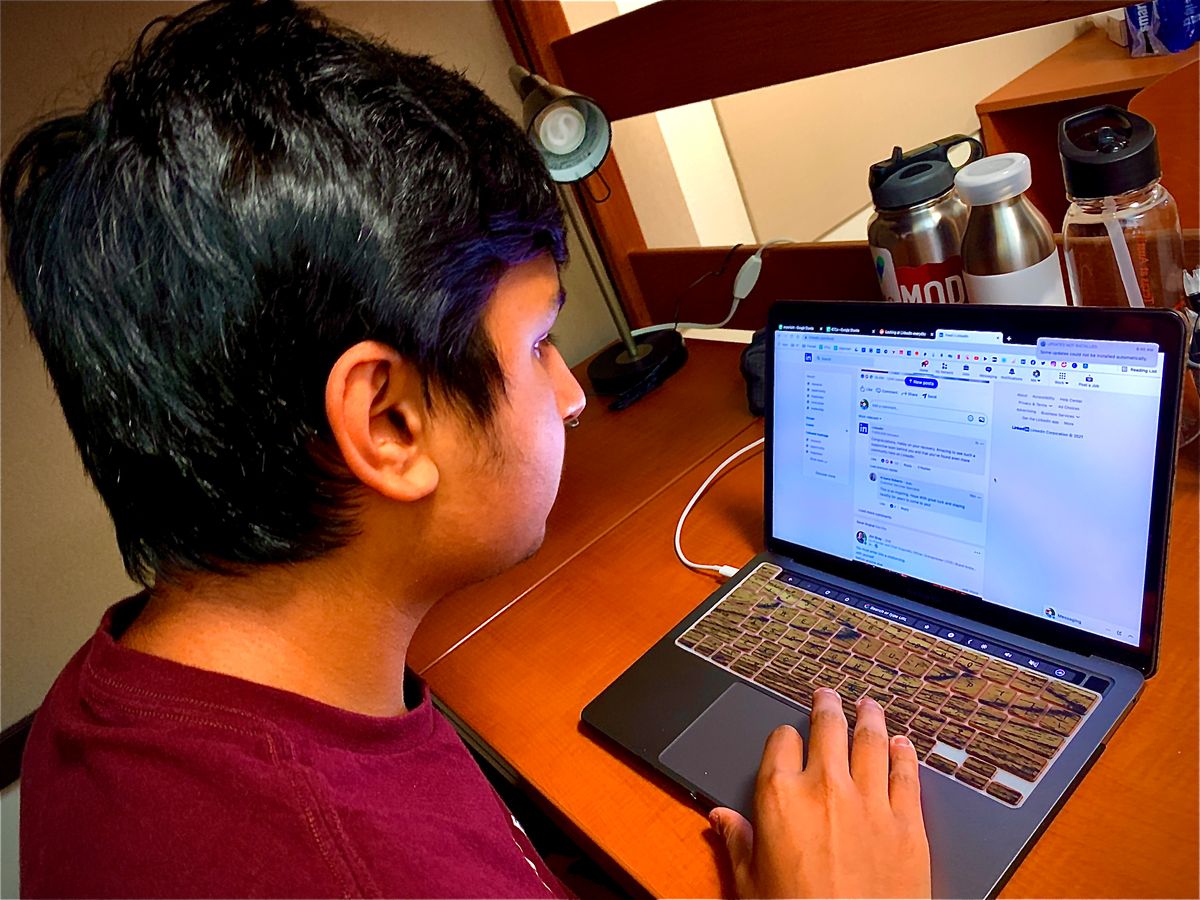How LinkedIn Affects Self-Esteem

While browsing through r/ApplyingToCollege (subreddit for college applicants) on Reddit, I came across a post by u/InfernoBlaster8 ("u/" means user) titled "Looking at LinkedIn Every Day Will Give You Cancer." The post describes how he spends time browsing LinkedIn daily and feels super demotivated about his college applications. Because of the LinkedIn suggestions, he sees many people who have "gotten into Stanford and top unis and they have all these crazy research and scholarship awards." The phrase "give you cancer" is a colloquial term used to signify his opinion that LinkedIn is a toxic and depressing environment.
LinkedIn is a professional networking platform to connect with people you have met through work or life experiences―similar to a friend request. You can write your work, volunteer, and extracurricular experiences with more descriptions than a concise resume on your public profile. Like most other social media platforms, users can also host events, create articles, and write posts. I learned a lot about the helpful features of LinkedIn from a past internship, and it has greatly contributed to my professional development.
Although my recent experience using LinkedIn is different from u/InfernoBlaster8's, I can completely understand his sentiment. When I first created a LinkedIn account during high school, I also compared my experiences with other students at my high school. I realized that not all high schoolers are a part of the LinkedIn platform, and they do not have much work experience to put on their profiles. Nevertheless, other's accomplishments still hurt my self-esteem.
Most people who are not proud of their achievements tend not to show them on their profiles. The few who post their extracurriculars are confident enough to do so. I know that many current high schoolers watch a ton of the college reaction videos during application season, which I did as well. However, know that they aren't an accurate picture of the masses for a similar reason. Confidence is why all the college reaction videos are by people who are proud of their achievements and results. Since a very high percentage of them are high-stat applicants (high GPA and high standardized test score), the audience's point of view remains skewed about where the average student lies. Suppose you have worse stats than the majority of the students who posted those videos. In that case, it is natural to have it affect your self-esteem. Just know that the college reaction videos and the high-achieving students on LinkedIn do not accurately represent the average high schooler.
It is not at all healthy to compare yourself to others on LinkedIn and other social media platforms. However, I advise that deleting your LinkedIn profile if it starts to affect your mental health is not the wisest option. The platform is still handy for staying in contact with your past managers and co-workers. An alternative is to delete the app from your phone and unsubscribe from emails so that you won't have the urge to scroll endlessly through your feed. LinkedIn has many benefits and downsides, so make a wise decision based on its impact on your life. If nothing else works, the last resort is to hibernate your LinkedIn account, which deactivates the account until you activate it again later.
Recently, LinkedIn has motivated me to develop professionally and recognize what I need to do to be as successful moving forward. I look for opportunities by searching for successful people who went to the same university as me and found what they did during their time there. A good trick that you can use to stay anonymous when viewing profiles is by going to Settings and Privacy > Visibility > Profile Viewing Options > Private Mode. This way, you can see other people's experiences without giving them your LinkedIn name and profile. However, I'm not particularly eager to do this myself because I get the chance to connect with people if they see that I looked at their profiles. Using this method, you can see which experiences made their applications phenomenal to Fortune 500 companies or top-tier graduate schools.
LinkedIn also allows you to search for job opportunities in a specific area. If I wanted to find "computer science internships in Seattle," I would use the search engine in LinkedIn and see what companies are currently accepting applications for the internships. I haven't yet applied for a job through LinkedIn. Still, I found relevant opportunities that I noted down for the future by searching up jobs in my city and looking at upperclassmen who were getting accepted to top medical schools.
The professional networking platform, LinkedIn, can help you connect with past co-workers and stay in contact with everyone over time. LinkedIn can also find you jobs, give you the experiences of successful people, and get you motivated to put more experiences under your belt. However, the opposite is also true for many. LinkedIn can be a toxic platform because of its impact on self-esteem. Whichever may be true to you, analyze how LinkedIn fits into your daily life. Does it brighten your day or make it dimmer?
